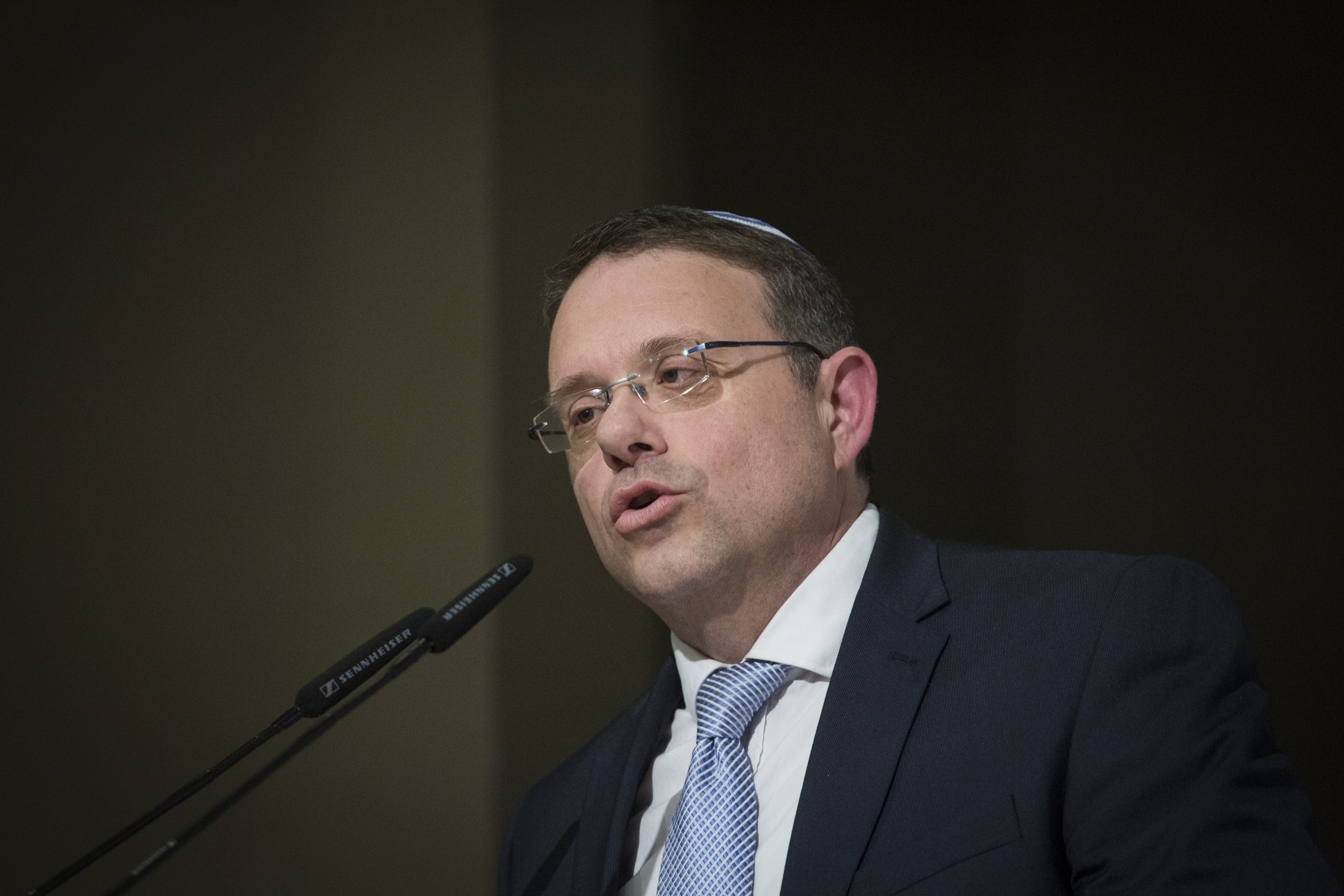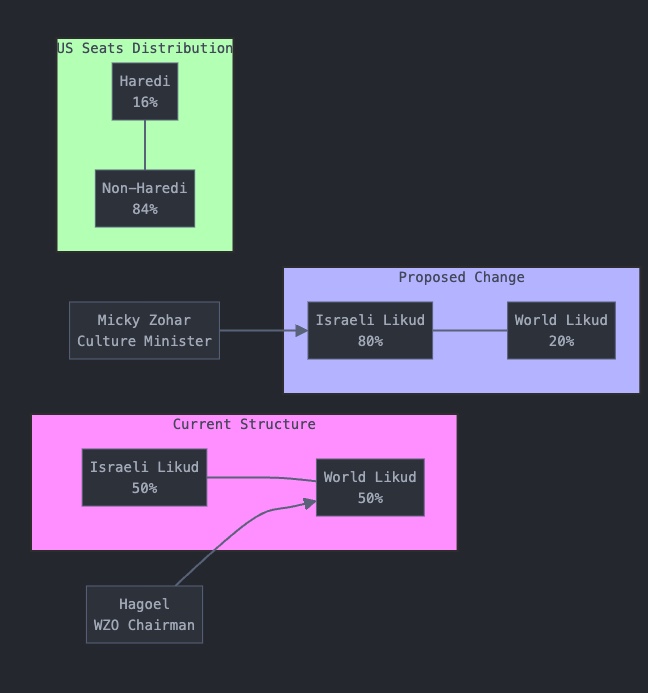Will Yaakov Hagoel Lose? Power, Politics and Billions at Stake in the World Zionist Congress
A ruthless power struggle threatens to upend the world's most powerful Jewish parliament. As orthodox forces surge and billions hang in the balance, the future of Jewish institutional life faces its most dramatic showdown in decades.

The upcoming World Zionist Congress election represents a watershed moment in Jewish institutional politics, with control over more than $1 billion in annual funding hanging in the balance. As World Zionist Organization (WZO) chairman Yaakov Hagoel faces significant challenges to his power base, the situation reflects deeper tensions within global Jewish leadership and institutional governance.
Historical Context and Significance
The World Zionist Congress, established by Theodor Herzl in 1897, holds a unique position in Jewish institutional life. As the parliamentary assembly of the Jewish people, it represents one of the few democratic forums where Jews worldwide can directly influence Israeli policy and institutional priorities. The Congress's importance stems not just from its historical legacy but from its concrete control over crucial national institutions that shape Jewish life both in Israel and the diaspora.
The Congress has maintained progressive values since its inception - women had voting rights at the second congress, decades before most nations granted universal suffrage. Today, it maintains these progressive traditions through strict requirements: every slate must ensure that at least 40% of delegates are women and 25% are under age 35.
The Core Power Struggle
A pivotal vote in the Likud Central Committee threatens to reshape the balance of power within one of the Congress's most influential factions. The current structure divides Likud's delegation evenly between:
- Israeli Likud representatives
- World Likud representatives
Culture and Sports Minister Micky Zohar is pushing for a dramatic restructuring that would allocate:
- 80% of seats to Israeli Likud
- 20% of seats to World Likud
This change would severely diminish Hagoel's influence, as his power base lies primarily within the World Likud faction. The amendment requires a two-thirds majority in the Likud Central Committee, making its passage uncertain but possible.

The 2020 Haredi Surprise and Its Implications
The 2020 election marked a seismic shift in the Congress's religious-political landscape. The emergence of Eretz HaKodesh, a new Haredi party affiliated with United Torah Judaism, dramatically altered the balance of power. Key developments included:
- Eretz HaKodesh secured 25 out of 152 U.S. seats (16%)
- This success came despite Haredi Jews comprising only about 5% of American Jewry
- Traditional liberal religious movements saw their representation decline
- For the first time, liberal religious movements became a minority in the Congress
This shift has had far-reaching implications for religious pluralism in Israel, affecting:
- Recognition of non-Orthodox conversions
- Western Wall prayer arrangements
- Funding for non-Orthodox movements through the Jewish Agency
- The overall balance between religious pluralism and fundamentalism
Institutional Power and Resources
The Congress oversees four major national institutions:
1. The World Zionist Organization (WZO)
- Implements the Congress's vision
- Coordinates Zionist education worldwide
- Manages settlement activities
2. The Jewish Agency
- Handles Jewish immigration to Israel
- Primary source of funding for non-Orthodox movements
- Coordinates Israel-diaspora relations
3. Keren Kayemeth LeIsrael-Jewish National Fund (KKL-JNF)
- Owns approximately 13% of Israel's land
- Controls a budget larger than all North American Jewish Federations combined
- Influences environmental and development policies
4. United Israel Appeal
- Manages significant philanthropic resources
- Supports various social and educational programs
The Current Electoral Landscape
The 39th World Zionist Congress election, running from March 10 to May 4, 2025, features unprecedented competition:
- 22 slates competing (up from 13 in 2020)
- Over 2,900 candidates
- Five new religious right-wing slates
- Concerns about vote splitting among religious-right factions
The Congress's 525 seats are distributed across three main blocs:
- Israel: 200 seats (reflecting Knesset representation)
- United States: 152 seats (determined by direct election)
- Other countries: 173 seats (various selection methods)
Recent Political Developments
The situation has grown increasingly complex:
- Zohar recently withdrew from agreements with centrist and left-wing parties after internal Likud criticism
- Hagoel has publicly accused Zohar of seeking to control patronage appointments
- Netanyahu confidante Yaakov Berdugo has supported Hagoel's accusations
- Religious-right parties face potential fragmentation of their voting base
Contemporary Challenges and Stakes
The Congress faces several critical challenges:
1. Post-October 7 Reconstruction
- Allocating resources for rebuilding
- Supporting affected communities
- Strengthening security infrastructure
2. Religious Pluralism
- Balance between Orthodox and progressive movements
- Western Wall prayer arrangements
- Conversion recognition
3. Diaspora Relations
- Strengthening Israel-diaspora bonds
- Supporting Jewish education worldwide
- Addressing growing polarization
4. Resource Allocation
- Distribution of over $1 billion annual budget
- Land use and development priorities
- Support for various religious streams
Looking Forward
The 39th World Zionist Congress will convene in Jerusalem from October 28-30, 2025, marking a critical moment in Jewish institutional politics. With the previous election drawing only 124,000 U.S. voters from a potential pool of over 7 million, increased turnout could dramatically alter the balance of power.
The convergence of internal Likud politics, religious-secular tensions, and broader questions of Jewish institutional governance makes this a pivotal moment. The outcomes will influence everything from religious pluralism in Israel to the future of Zionist education worldwide, making the upcoming votes and elections particularly significant for the future of Jewish institutional life.